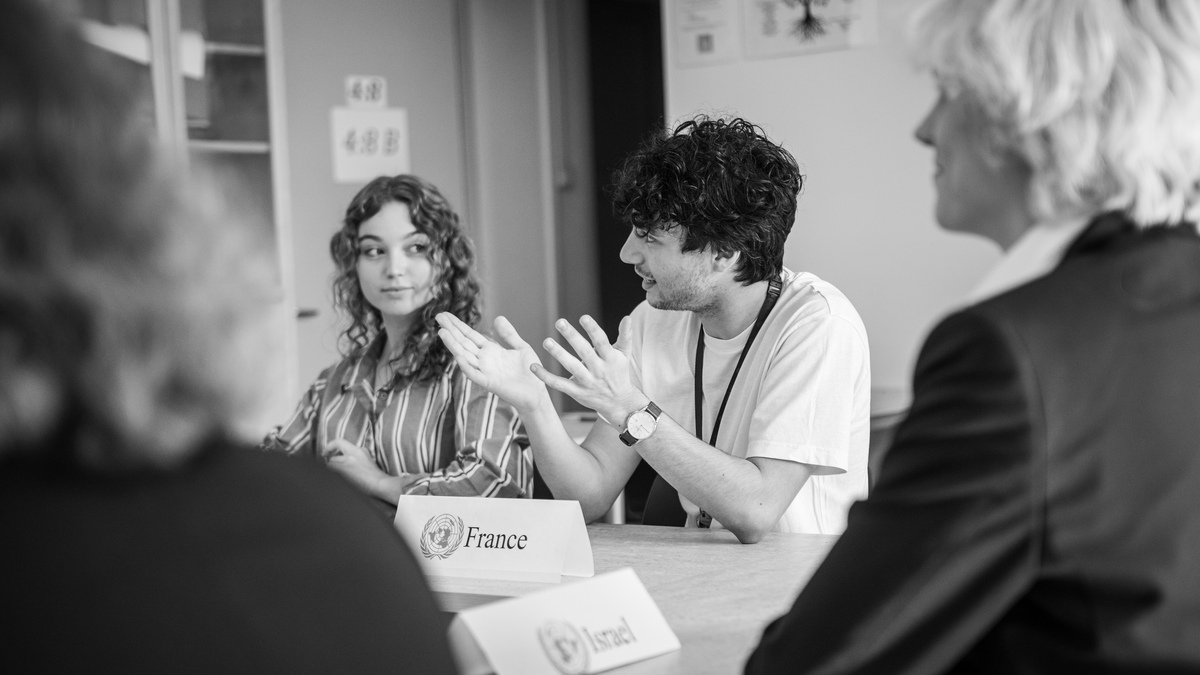News | 22 May 2023
Great success for students on the IB programme
IES’ upper secondary school, Internationella Engelska Gymnasiet Södermalm (IEGS), achieved great success in the International Baccalaureate programme in the 2021/2022 academic year when 91.5 per cent of the students passed the IB compared to 85.5 per cent globally. About a quarter of the students study the IB programme, which also qualifies them for higher education abroad or at institutions where all subjects are studied in English. As with the rest of the IES organisation, the upper secondary school focuses on constantly improving and enhancing quality within teaching.

Internationella Engelska Gymnasiet Södermalm offers four national upper secondary programmes in addition to the international IB programme. The school is located on Södermalm in Stockholm, has around 720 students and there is a strong academic and multicultural tradition throughout. IEGS is run by the same organisation as other IES schools and its activities are based on the same principles and ethos, in other words giving every student the possibility to achieve high academic expectations and aspirations and to navigate through an international environment, whatever their background.
Since teaching is conducted in English by teachers whose native language is English, students are prepared for international education and work.
More students attracted to the IB programme
In spring 2022, 60 students graduated from the school’s IB programme, which is an internationally recognised academic programme offered in more than 3,000 schools in 47 countries all over the world. IEGS students excelled in their results, which were higher than the global average. The course content and exams are the same at all IB schools around the world. One of our students gained full marks, something fewer than one per cent of all IB students achieved globally.
IEGS has offered the IB programme since 2013, and the programme has attracted more and more students since then, many of whom hope to continue their studies abroad. One thing they all have in common is a strong interest in the English language. While the IB is a two-year education programme it encompasses three years of studies, just like all other upper secondary programmes. The first year is a preparatory year followed by the two-year IB programme, including in-depth studies in six subjects. Students that pass the IB can apply to universities including Oxford, Cambridge, Princeton, Harvard, Heidelberg and the Sorbonne.
Surveys form the foundation for quality improvement
Surveys of students and teachers provide the primary input to IEGS’s quality improvement work across all of its areas of activity. The questions cover both academic quality as well as softer values such as safety and well-being in the school environment. In addition to this, the school analyses the results of other surveys, such as the Swedish National Agency for Education’s annual survey of all year two upper secondary students. If answers suggest there is a shortcoming in any area, such as safety, priority is given to measures that address the issue.
One indicator of quality is how well each student develops. The student’s level of knowledge is therefore analysed in the first week of the first term of year one, followed by regular checks and assessments of the student’s progress over time. If progress does not go in the right direction, the student is offered different kinds of support.
Lesson quality is evaluated
Goals are set at the beginning of the academic year and activities are targeted towards achieving these. To evaluate how successful the teaching is, the subject managers attend lessons during the year. Support is then offered to any teachers who are deemed to need it.
At the end of the spring term the school principal also sits in on classes to observe how well the teaching lives up to the goals.
To read the full quality report, click here.
Learn more about IEG on their website: www.engelskagymnasiet.se